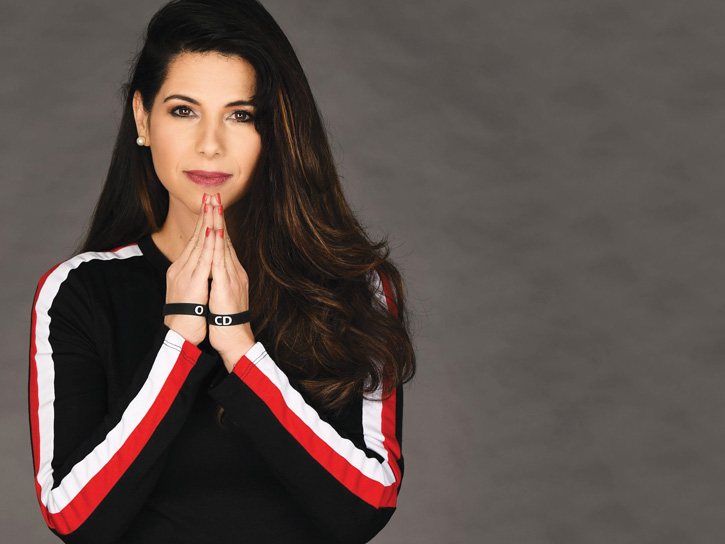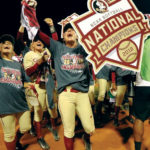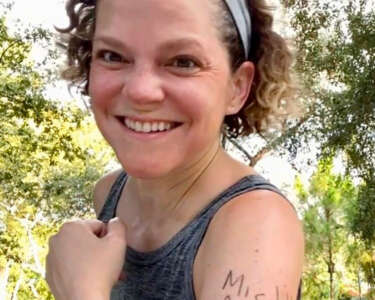Background
Drawing from her own personal experiences, Broward-native Dr. Ilisa Kaufman followed her passion for helping others into a career a psychologist. “I went through personal struggles with loss and it really inspired me to want to work with others,” says Kaufman, who felt her career calling even as a teen. Today, the mom of three works with patients of all ages across South Florida who struggle with Obsessive Compulsive Disorder (OCD) or an obsessive compulsive-related disorder. “I saw how cruel this disorder can be; how the sufferers are held prisoners in their own minds and are not able to break free,” says Kaufman. “The idea of helping unlock them felt so necessary.” Her work with those patients is what spurred Kaufman to create the “Tear OCD Apart” campaign, bringing awareness to both the disease and it’s treatment.
About ERP
In her practice, Kaufman employs a therapy known as ERP or Exposure and Response Prevention. “I started working with the OCD population ten years ago and I realized that exposure response prevention is the key to getting better,” she says. “That’s when I became really interested in ERP.” In ERP, the therapist will actually separate the obsession from the compulsion. For instance, a compulsive hand washer will touch something they see as “dirty” with the therapist there to prevent them from moving on to the compulsion (hand-washing). “When you prevent a compulsion, over time the obsession gets better,” says Kaufman. “Anxiety increases but then it will come back down so they can learn to function without the compulsion. You’re retraining your brain.”
Tearing Apart OCD
As a dedicated advocate for OCD patients, Kaufman had been brainstorming ways to bring awareness to the cause when she was struck by the idea of drawing from her own therapies. From there, Kaufman created the Tear OCD Apart campaign, designing two bracelets, one with an “O” and there other with “CD.” “I was walking around my neighborhood and I was thinking of how I could use something to symbolize OCD,” she says. “I wanted to create a physical symbol that would represent the need to tear apart the obsessions from the compulsions. The whole idea came to me. You put the O on one wrist and the C on the other. When you are feeling stuck together, you can break up the idea.”
Looking Ahead
After launching the bracelets on her Instagram page (@ilisakaufman), Kaufman partnered with the International OCD Foundation to spread the word, even distributing them to attendees at the IOCDF Conference in Washington, DC this past July. For others, Kaufman is happy to ship out bracelets with the promise that wearers will post images on their social media with her hashtag: #tearingocdapart. “It’s really all about bringing awareness,” she says. “I want all people to have the knowledge that if you suffer from OCD, ERP can help.”
#tearingocdapart; Compulsioncontrol.com













 Deering Estate
Deering Estate
 Massage Envy South Miami
Massage Envy South Miami
 Calla Blow Dry
Calla Blow Dry
 My Derma Clinic
My Derma Clinic
 Sushi Maki
Sushi Maki
 Sports Grill
Sports Grill
 The Healthy Kitchen
The Healthy Kitchen
 Golden Rule Seafood
Golden Rule Seafood
 Malanga Cuban Café
Malanga Cuban Café

 Kathleen Ballard
Kathleen Ballard
 Panter, Panter & Sampedro
Panter, Panter & Sampedro
 Vintage Liquors
Vintage Liquors
 The Dog from Ipanema
The Dog from Ipanema
 Rubinstein Family Chiropractic
Rubinstein Family Chiropractic
 Your Pet’s Best
Your Pet’s Best
 Indigo Republic
Indigo Republic




 ATR Luxury Homes
ATR Luxury Homes


 2112 Design Studio
2112 Design Studio
 Hamilton Fox & Company
Hamilton Fox & Company
 Creative Design Services
Creative Design Services
 Best Pest Professionals
Best Pest Professionals
 HD Tree Services
HD Tree Services
 Trinity Air Conditioning Company
Trinity Air Conditioning Company
 Cisca Construction & Development
Cisca Construction & Development
 Mosquito Joe
Mosquito Joe
 Cutler Bay Solar Solutions
Cutler Bay Solar Solutions


 Miami Royal Ballet & Dance
Miami Royal Ballet & Dance
 Christopher Columbus
Christopher Columbus
 Pineview Preschools
Pineview Preschools
 Westminster
Westminster
 Carrollton
Carrollton
 Lil’ Jungle
Lil’ Jungle
 Frost Science Museum
Frost Science Museum
 Palmer Trinity School
Palmer Trinity School
 South Florida Music
South Florida Music
 Pinecrest Orthodontics
Pinecrest Orthodontics
 Dr. Bob Pediatric Dentist
Dr. Bob Pediatric Dentist
 d.pediatrics
d.pediatrics
 South Miami Women’s Health
South Miami Women’s Health

 The Spot Barbershop
The Spot Barbershop
 My Derma Clinic
My Derma Clinic




 Miami Dance Project
Miami Dance Project

 Rubinstein Family Chiropractic
Rubinstein Family Chiropractic
 Indigo Republic
Indigo Republic

 Safes Universe
Safes Universe
 Vintage Liquors
Vintage Liquors
 Evenings Delight
Evenings Delight





 Atchana’s Homegrown Thai
Atchana’s Homegrown Thai
 Baptist Health South Florida
Baptist Health South Florida

 Laser Eye Center of Miami
Laser Eye Center of Miami
 Visiting Angels
Visiting Angels
 OpusCare of South Florida
OpusCare of South Florida

 Your Pet’s Best
Your Pet’s Best





 HD Tree Services
HD Tree Services
 Hamilton Fox & Company
Hamilton Fox & Company


 Creative Design Services
Creative Design Services